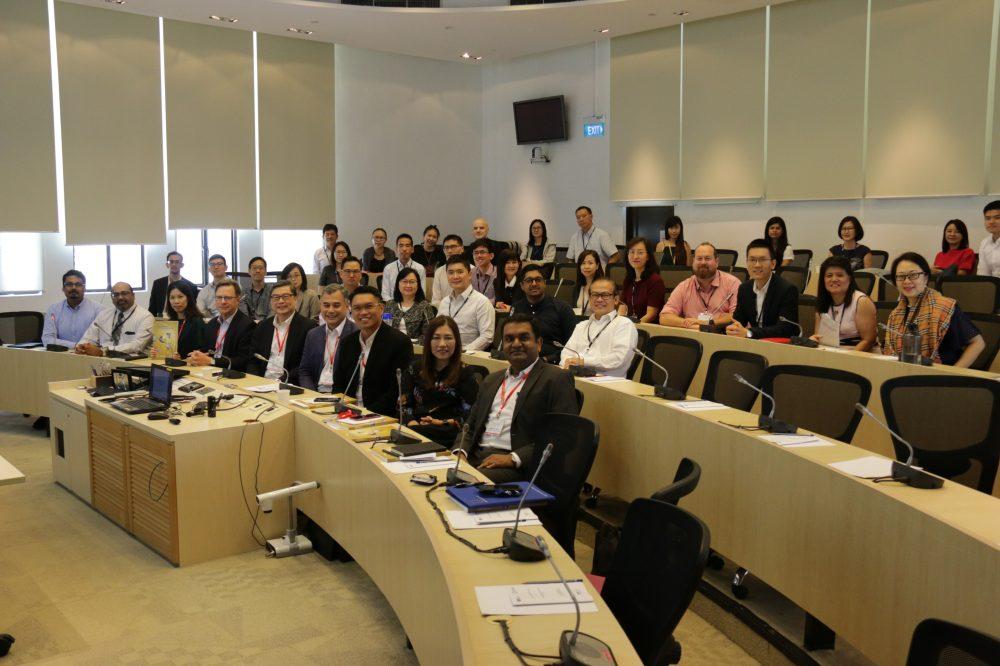The APRU Report, Transformation of Work in Asia-Pacific in the 21st Century, was launched in Singapore on July 11, 2019. Dr Faizal bin Yahya, Senior Research Fellow at Institute of Policy Studies (IPS), contributed Singapore’s case studies to the sixth chapter of the report, which highlights the advances Singapore has made in introducing digitalization in its economy and offered suggestions on future related initiatives. This report also emphasized the need for greater synergy between academia and industry to help workers remain employable in a fast-evolving business environment and a digital economy.
The event started with an overview of APRU and project developments introduced by the APRU International Secretariat. Follow up the project’s major findings and policy recommendations were presented by Prof Tam Kar-Yan who is the project lead of this collaborative work and the Dean of the Business School, The Hong Kong University of Science and Technology.
Dr Faizal was a moderator in the following panel chairing an in-depth discussion on Singapore’s cases. The panelists included Mr Patrick Tay, Director of Legal and Strategy and Assistant Secretary-General of National Trades Union Congress, Dr Jaclyn Lee, Chief Human Resources Officer and Senior Fellow and SUTD Academy of Singapore University of Technology and Design and, Mr Abhijit Chavan, Director of Intelligent Automation, PwC South East Asia Consulting.
The key themes behind the ensuing discussions revolved around a mindset shifting and industry transformation. Most participants agreed that it was important to have leaders with a long-term vision within organizations to promote digital transformation in the workplace in an organic and non-hostile approach. It was noted that many people especially workers were unaware of the changes were occurring. As such, most of them were unprepared when disruptions impacted their work or displaced them.
Adapting to a transformative work environment is also important. There has been an accelerated growth in technology advancements to a point that pessimism tends to dominate the minds of workers that they fear many jobs will be automated away. It is, therefore, necessary to equip workers with relevant new skills that are needed for the digital economy.
The training of workers necessitates the transformation of educational institutions. Graduates now need to be equipped with broader skillsets to promote flexibility and agility in a transformative landscape. Computational skills are also necessary in many fields such as human resources though it should be introduced in a way where there is buy-in from the workers themselves.
See the photos here.

